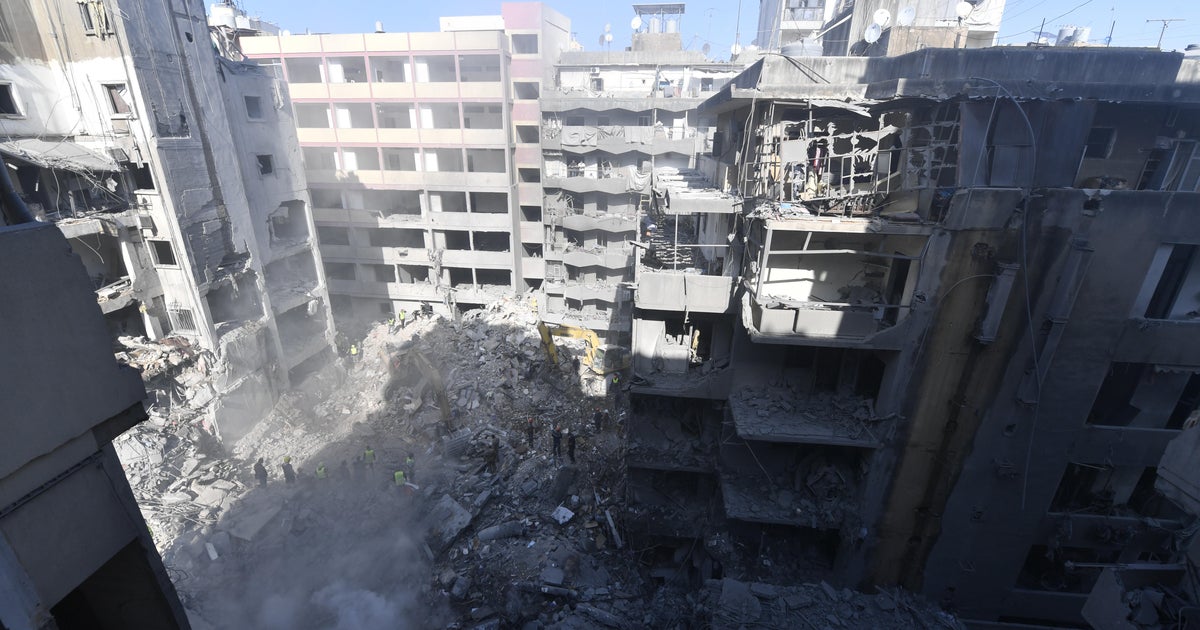"It doesn't feel like Eid": Kashmiri Muslims cut off from families by India's blackout
New Delhi -- "Did you take any medicine?" Shahid Lone's mother asked him in a phone call on August 5. Lone, research scholar from Kashmir who is studying in the Indian capital of New Delhi, was down with a fever. Before he could answer his mother's question, the phone was disconnected.
All phone lines in the part of Kashmir controlled by India were severed at that very moment. The internet was shut down, too.
Eight days later, Lone and thousands of other Kashmiris living outside the small, disputed region in the Himalayas still haven't been able to get back in touch with their families. The disconnect, and the worry that comes with it, were felt even more acutely on Monday as India's only predominantly-Muslim region marked the religious festival of Eid al-Adha.
Changing Kashmir's status
The population of about 8 million people in Indian Administered Kashmir remained under a complete communications blackout on Monday, with little or no contact with the outside world, except what they can see on TV.
They only learned by watching television, the morning after the communications blackout took effect last week, that the Indian federal government had revoked the region's special status.
Hindu nationalist Prime Minister Narendra Modi and his party had promised in their election manifesto to abrogate the special status of the only Muslim-majority state, and they made good on the promise last week, revoking Article 370 and Article 35A of the Indian constitution. Together those measures had granted state of Jammu and Kashmir its own constitution and decision-making rights for everything but from foreign affairs, communications, and defense. They also prevented Indians from outside the state from permanently settling there and buying land.
Modi called his decision "historic." India's government argues that the move, which has been fervently supported by many Hindu nationalists, would boost investment in Kashmir and thus improve the livelihoods of its residents. Critics say it could shift the demographics of Kashmir by allowing in Hindu residents, and setting the stage for confrontations.
The government has said it will divide the region into two territories, both directly governed by the federal government in New Delhi.
Fearing protests over the monumental decision, Indian authorities locked down most parts of the Kashmir Valley, imposed a curfew and cut the phone and internet lines. The security lockdown was relaxed slightly after a couple days, but the communications blackout has remained in place.
"It doesn't feel like Eid"
"We expected the government to open the phone lines for Eid at least," Muhammad Basit, another Kashmiri working in New Delhi, told CBS News. "This is a black Eid."
"What kind of Eid is one when you are not even able to speak to your parents?" Lone asked.
"It doesn't feel like Eid. There are no messages from home, no calls. There is nothing Mubarak (blessed) about today," Maroosha Muzaffar, a Kashmiri journalist working in New Delhi, posted on her Twitter page.
Police deny mass protests in Kashmir
The Indian government and police insisted on Monday that the situation in Kashmir had remained calm, and that "not a single bullet has been fired by the police."
The BBC reported, however, that police opened fire and used tear gas on a group of thousands protesting the change in status.
Even though the BBC posted video to back up its reporting, Indian authorities flatly denied it, and another report by the Reuters news agency of a demonstration in the regional capital of Srinagar attended by some 10,000 people.
The government labelled the Reuters report "completely fabricated and incorrect."
Jammu and Kashmir's police force posted tweets with video and photos of people "celebrating" Eid in a bid to depict normalcy, but later in the day police admitted to "a couple of minor localized incidents of law & order." The police said "only a couple of injuries (were) reported… otherwise situation in the entire valley is normal."
Police reportedly allowed some Kashmiris to visit smaller mosques in the region to mark Eid on Monday, but the biggest place of worship was apparently closed, to avoid a large gathering.
"How long will they (government) keep the people caged and stop the information flow out of the valley?" Lone wondered aloud. "This bubble has to burst sooner or later."
Ties with Pakistan also strained
The decision to revoke Article 370 also worsened ties between New Delhi and India's neighbor, Pakistan. The two nuclear-armed nations have fought three major wars over Kashmir, which is claimed in its entirety by both.
In the latest fallout, after the suspension of a train service between India and Pakistan, the bus service between Delhi and Lahore was also discontinued on Monday.
Last week, Pakistan expelled the senior Indian envoy and recalled its High Commissioner from New Delhi after downgrading the countries diplomatic and trade ties.
Pakistan has said it will push the United Nations Security Council to intervene on the issue of Kashmir.





